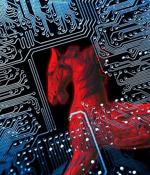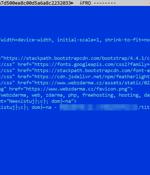Security News

A variant of the bad penny that is Dridex, the general-purpose malware that has been around for years, now has macOS platforms in its sights and a new way of delivering malicious macros via documents. While the Dridex variant has macOS systems in its sights, the malicious payload it delivers is a Microsoft exe file, which won't run in a MacOS environment.

Microsoft has shed light on four different ransomware families - KeRanger, FileCoder, MacRansom, and EvilQuest - that are known to impact Apple macOS systems. The initial vector for these ransomware families involves what the Windows maker calls "User-assisted methods," wherein the victim downloads and installs trojanized applications.

A variant of the infamous Dridex banking malware has set its sights on Apple's macOS operating system using a previously undocumented infection method, according to latest research. Previous Dridex campaigns targeting Windows have leveraged macro-enabled Microsoft Excel documents sent via phishing emails to deploy the payload. A law enforcement operation orchestrated by Europe and the U.S. disrupted the botnet in October 2015 and a Moldovan national named Andrey Ghinkul was arrested for his role as an administrator of the operation.

Security researchers at Microsoft have discovered a bug in macOS that lets malicious apps bypass Apple's Gatekeeper security software "For initial access by malware and other threats." Gatekeeper has been a part of macOS for a decade and is used to validate that apps are signed and notarized before allowing them to be launched.

Microsoft has disclosed details of a now-patched security flaw in Apple macOS that could be exploited by an attacker to get around security protections imposed to prevent the execution of malicious applications. The shortcoming, dubbed Achilles, was addressed by the iPhone maker in macOS Ventura 13, Monterey 12.6.2, and Big Sur 11.7.2, describing it as a logic issue that could be weaponized by an app to circumvent Gatekeeper checks.

Apple has fixed a vulnerability attackers could leverage to deploy malware on vulnerable macOS devices via untrusted applications capable of bypassing Gatekeeper application execution restrictions. Found and reported by Microsoft principal security researcher Jonathan Bar Or, the security flaw is now tracked as CVE-2022-42821.

Apple has fixed a vulnerability attackers could leverage to deploy malware on vulnerable macOS devices via untrusted applications capable of bypassing Gatekeeper application execution restrictions. Apple addressed the bug in macOS 13, macOS 12.6.2, and macOS 1.7.2 one week ago, on December 13.

Google has officially begun rolling out support for passkeys, the next-generation passwordless login standard, to its stable version of Chrome web browser. This calls for websites to build passkey support on their sites using the WebAuthn API. Essentially, the technology works by creating a unique cryptographic key pair to associate with an account for the app or website during account registration.

A now-patched security flaw in Apple's iOS and macOS operating systems could have potentially enabled apps with Bluetooth access to eavesdrop on conversations with Siri. Apple said "An app may be able to record audio using a pair of connected AirPods," adding it addressed the Core Bluetooth issue in iOS 16.1 with improved entitlements.

A previously undocumented command-and-control framework dubbed Alchimist is likely being used in the wild to target Windows, macOS, and Linux systems. "Alchimist C2 has a web interface written in Simplified Chinese and can generate a configured payload, establish remote sessions, deploy payload to the remote machines, capture screenshots, perform remote shellcode execution, and run arbitrary commands," Cisco Talos said in a report shared with The Hacker News.